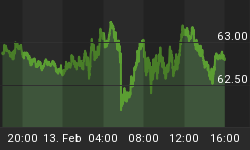Four years ago, Edward Snowden poignantly noted that “No system of mass surveillance has existed in any society, that we know of to this point, that has not been abused.”
At this point, some may view Snowden—who fled to Russia after leaking thousands of documents from the NSA—as a rather prophetic amid mounting data breach scandals, abuses of personal information in an election campaign and, now, the rise of controversial facial recognition software.
In the midst of U.S.-China-led global trade war, both countries are competing on another front: The race to develop the best facial recognition software--a market that is expected to grow from $4 billion in 2017 to almost $8 billion by 2022.
Even though U.S. facial recognition technology market still remains the largest, China is developing new technologies at faster clip. And if it isn’t controversial enough yet, it should be.
In 2017, Chinese companies filed for 530 camera and video surveillance patents, while the U.S. entities filed for only 96. That’s not surprising considering the fact that last year, the Chinese government announced plans to develop an artificial intelligence (AI) industry worth $150 billion by 2030.
Beijing is working on a nation-wide surveillance network capable of monitoring its 1.4 billion citizens. Related: Life Returns To S&P 500 Ahead Of Earnings Report
In the U.S., advocates of privacy and civil rights are trying to prevent the use of face recognition for government agencies. And the argument will always be that we have to keep pace with China, at all costs, technologically.
Privacy advocates say it could lead to automatically identifying and tracking anyone, not just criminals, and can (and will—ask Snowden) be used to violate and possibly remove all traces of privacy.
Last month, nearly two dozen Amazon shareholder groups sided with privacy advocates and pressured Amazon’s CEO Jeff Bezos to stop selling a facial recognition technology to law enforcement agencies. Rekognition customers include law enforcement agencies from several US states.
They’re concerned that the technology—call Rekognition—will help the government cement its mass surveillance capabilities.
But then there’s China, where there are far fewer constraints to developing such software, and where there is no public pressure weighing on an insidious outcome.
Beijing is working side-by-side with the country’s tech industry, many of the top stars being graduates of U.S. universities and former employees of major US-based tech companies. Of the one million foreign nationals enrolled at U.S. schools, about one-third are from China, and many of them are going back home now, to put their new skills to work for the government.
Two Chinese companies are becoming world leaders in the deployment of facial recognition software.
In April, SenseTime became the world's highest valued AI startup after raising total of $1.2 billion at a valuation of $4.5 billion. Its main partner is the Chinese government, which uses its systems for national surveillance.
The second is Megvii, which began as a facial recognition startup but now also develops body, object and text recognition software. Its Face++ platform is considered the world’s largest and is reportedly used by more than 300,000 developers in 150 countries to identify faces. The company raised $460 million last November, with a valuation of almost $2 billion.
Its main investors are said to include a Chinese state fund and Alibaba’s Ant Financial but the main client China's government, particularly police departments at the local level, is a major client.
Megvii’s vice president Xie Yinan reportedly said that with its demand for facial recognition technologies, China’s government has helped the company quickly innovate its technology.
"The government is pushing the need for this technology from the top, so companies don't have big obstacles in making it happen…In America, people are too busy discussing how they should use it."
Related: 85 Year Old’s Are Still Working Because They Can’t Retire
But that might change soon in US as well, despite the increase of privacy violation concerns.
The development of the software has, after all, been fast-tracked by the US administration, which is obsessed with securing the southern border and collecting more data from arrivals into the U.S. As of early next month, the U.S. Customs and Border Protection (CBP) will begin piloting a new facial recognition system at the Mexican border.
Facial recognition at U.S. airports is becoming routine as facial-scanning pilot programs are already underway at six airports and more are set to expand this year.
International arrivals is where it starts. But once this is allowed, it will snowball into something that Snowden easily predicted—an end to privacy, entirely, starting with China. This is where America becomes China.
By Michael Kern for Safehaven.com
More Top Reads From Safehaven.com:

















